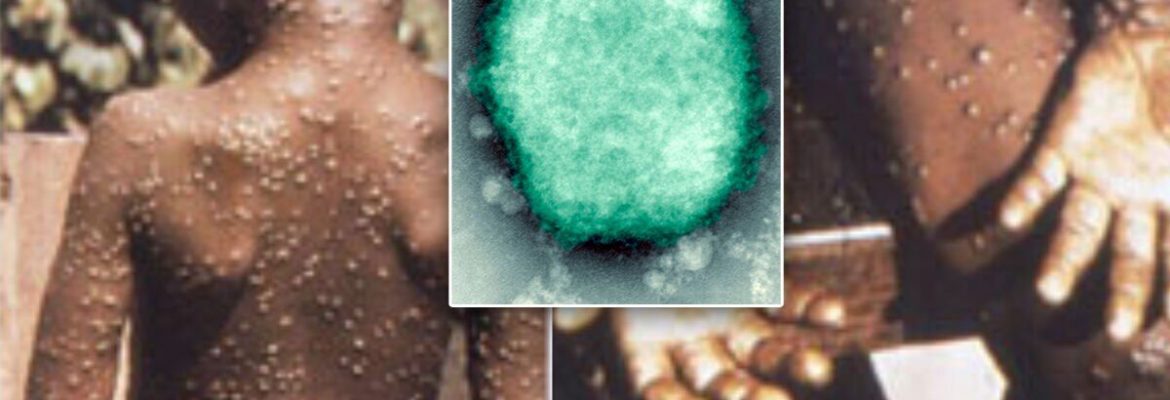Monkeypox warning: The ‘telltale symptom’ to watch out for – and how to avoid infection
Monkeypox: Rare disease explained
We use your sign-up to provide content in ways you’ve consented to and to improve our understanding of you. This may include adverts from us and 3rd parties based on our understanding. You can unsubscribe at any time. More info
Seven cases of monkeypox have been confirmed in the UK since May 7. The infection is a deadly virus that’s most common in central and West Africa, and human-to-human transmission is relatively rare. However, it’s still vital to remain vigilant, and to look out for any clear signs of infection.
Monkeypox has similar symptoms to smallpox, according to Medicine Direct’s Superintendent Pharmacist and Clinical Director, Hussain Abdeh.
However, the key different between smallpox and monkeypox is a change to the lymph nodes, he said.
You might notice your lymph nodes becoming increasingly swollen, along with more common symptoms of smallpox.
If you’ve recently returned from Africa and develop signs of monkeypox, you should call 111 straight away, he warned.

Mr Abdeh told Express.co.uk: “Monkeypox shares many symptoms with smallpox. Some of the most common symptoms of both conditions include chills, backache, muscle aches, headache, exhaustion, and fever.
“The main telltale symptom that can help you to differentiate between smallpox and monkeypox is swollen lymph nodes.
“Monkeypox can cause your lymph nodes to swell, but smallpox will not.”
Despite the rising number of cases, the risk to the UK public is still relatively small, he added.
Most people that become infected with monkeypox in the UK will get better within two to four weeks, said Mr Abdeh.
But it’s still important to take proper precautions to limit your chances of infection.
“To keep the risk of getting monkeypox to a minimum, you should regularly wash your hands with soap and water,” he said.
“Carry a bottle of hand sanitiser with you when you go out.
DON’T MISS
Monkeypox virus hits UK – How do you catch it and how is it spread? [EXPLAINER]
WHO issues dire warning as cases of deadly Monkeypox confirmed in UK [LATEST]
Monkeypox: Four additional cases in England – ‘Be alert’ [NEWS]
monkeypox


“Naturally, it is important to stay away from dead animals, too. Avoid close contact with anyone you know who has monkeypox.”
Meanwhile, one of the most common signs of monkeypox infection is the characteristic rash.
You might develop a high fever, muscle aches, and swollen glands, before the rash appears.
It usually starts on the face, before spreading to other parts of the body.
Monkeypox could be confused with chickenpox at first, as it starts as raised blisters.
After a while, these blisters become filled with fluid, and eventually drop off.
It’s a mild self-limiting illness, and most people recover after just a few weeks.
But, in some cases, it can lead to severe illness, warned the World Health Organization.
Source: Read Full Article
